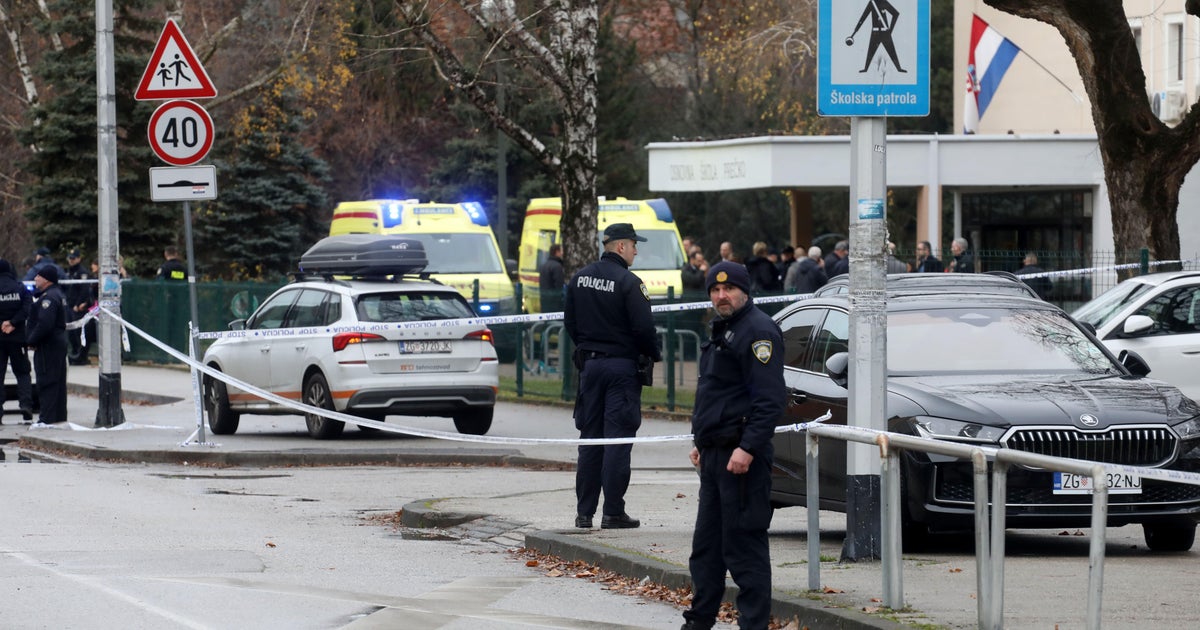India's PM Modi silent on Kashmir crackdown as Pakistan says troops killed in cross-border fire
New Delhi -- Indian Prime Minister Narendra Modi on Thursday justified his government's move to revoke Kashmir's semi-autonomous status as the picturesque Himalayan valley remained under a strict government lockdown for the 11th day. Modi said "a new approach was needed" on the territory, ownership over which has long been disputed with neighboring Pakistan, as efforts by Indian governments over the past 70 years "did not bear results."
The Indian leader did not address in his speech the mounting tension between his nation and Pakistan fuelled by his move in Kashmir, which ramped-up further Thursday with cross-border fire by the opposing military forces reportedly leaving eight people dead.
Modi addressed the nation on India's 73rd Independence Day from the ramparts of the iconic 17th century Red Fort in Delhi.
He said Article 370 and Article 35A, the constitutional provisions that had given Jammu and Kashmir state significant autonomy had only "encouraged corruption and nepotism."
Article 370 gave the state of Jammu and Kashmir its own constitution and law-making rights for everything but foreign affairs, communications, and defense. Article 35A prevented Indians from outside the state from settling permanently there and buying land.
On August 5, India revoked both articles and bifurcated the state into two territories that will be directly controlled by the federal government, amid a security and communications crackdown on the residents of Kashmir.
Critics see the move as an attempt by Modi's Hindu-nationalist government to shift the demographics of Muslim-majority Kashmir by allowing Hindu people to settle there.
"One Nation, one constitution -- this spirit has become a reality and India is proud of it," Modi said in his speech. "We think differently… we neither nurse problems nor keep them pending."
Kashmir lockdown, Day 11
Modi remained silent on the Kashmir lockdown and communications blackout which was in its 11th day on Thursday.
Kashmir residents have been largely kept indoors by a huge paramilitary presence since August 5. Phone lines and the internet have also been cut off, leaving the 8 million inhabitants completely cut off from the rest of the world.
There have been a couple of relaxations in the government imposed curfew, but none in the communications blackout which has cut people off from their families living outside the region --felt even more over the Muslim holiday of Eid marked this week.
It was still not clear Thursday how long Modi's government would keep the lockdown and communications blackout in place.
The Indian government and police authorities have insisted the situation in Kashmir is "calm," barring some small protests. But news reports, dismissed as fabrications by the Indian government, have shown mass protests and police action against them.
Earlier this week, Human Rights Watch called on India to "release political detainees, lift the communications blackout, allow proper access to media and independent observers, and order security officials to respect human rights."
Backlash from Pakistan
Modi didn't respond in his remarks Thursday to a warning from Pakistan's Prime Minister Imran Khan, who on Wednesday said his country would "teach India a lesson."
On Thursday, not long after Modi spoke, Pakistan claimed three of its soldiers were killed at the border dividing Kashmir by Indian forces, and said five Indian troops were also killed in the exchange of fire. India's military denied that any of its forces were killed.
Khan said on Wednesday that "the Pakistani army has solid information that they (India) are planning to do something in Pakistani Kashmir. We have decided that if India commits any violation we will fight until the end… The time has arrived to teach you (India) a lesson."
Khan made the comments during his speech on Pakistan's own Independence Day, celebrated on August 14, one day before India's. Both countries came into being after the U.K. relinquished its colonial ownership of what had been a united India in 1947, creating two separate nations.
Since then, the two countries, both nuclear powers, have fought three major wars over Kashmir, which is divided between Indian and Pakistani controlled portions
"Whatever was done during the curfew by India, we will tell the international community that you are responsible. Whichever forum we get, I will be the ambassador and bring up Kashmir at every forum," Khan said.
Pakistan has downgraded relations with India and requested the United Nations Security Council hold an emergency meeting on India's "illegal" move in the disputed state.
Pakistan's close ally, China, had also sought a meeting on Kashmir at the UN Security Council, and sources confirmed to CBS News' Pamela Falk that a meeting had been scheduled for Friday morning to hold closed consultations on the escalating crisis.





